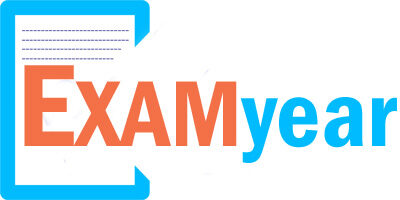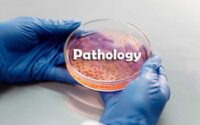Cardiology Questions and Answers
Cardiology Questions and Answers paper for the written examination is given below. Candidates who are looking for Cardiology exam Questions and Answers paper can find in this section. The applied candidates who are getting prepared for the Cardiology can view this page for the Cardiology Last Ten Years Questions and Answers Papers.

Download the Cardiology Questions and Answers & Solutions & make it as a reference for your exam preparation. Take advantage of these Cardiology Questions and Answers Papers in a proper manner to get qualifying Marks. Last 5 years Cardiology Questions and Answers Papers provided here.
Candidates who are applied for the above exam can check and download the Cardiology Questions and Answers Papers from here.
Questions and Answers on Cardiology
1. Minimum duration of secondary prophylaxis in rheumatic fever without carditis is
(1) 1 year
(2) 5 years
(3) 10 years
(4) Life long
2. A patient of Metastatic prostate cancer arrives in emergency with acute shortness of breath. Which among following will not help you to assess clinical likelihood of acute pulmonary embolism ?
(1) Tachycardia
(2) Hemoptysis
(3) Hypotension
(4) Iloman’s sign
3. According to 2015 LESC/ERS guidelines PAII due to left heart disease is classified as
(1) Group 1
(2) Group 2
(3) Group 3
(4) Group 5
4. Criteria for diagnosing Takayasu arteritis include following except
(1) Extremity claudication
(2) Reduced brachial pulsation
(3) Bruit
(4) Age > 40 years
5. CABG in comparison to PCI is preferred in a case of Multivessel disease in
(1) Syntax score > 33
(2) Setting of acute STEM 1
(3) Previous CABG
(4) Comorbid COPD and high STS score
6. Not a cause of ST elevation in ECG
(1) Acute pericarditis
(2) LBBB
(3) Pneumothorax
(4) Hypothermia
7. Kussmaul’s sign is seen in-
(1) Mediastinal lymphoma
(2) RVMI
(3) Ebsteins Anomaly
(4) Pneumothorax
8. LV diastolic dysfunction in echocardiography can be assessed by all except
(1) Velocity of Propagation
(2) Mitral inflow pattern
(3) Tissue doppler Imaging
(4) Contrast echocardiography
9. Paradoxical split of S2 occurs in
(1) Post-operative RBBB
(2) Permanent Pacemaker implantation
(3) Severe MR
(4) ASD
10. Which of the following is Crescendo-decrescendo murmur ?
(1) Graham steel murmur
(2) Austin- flint murmur
(3) Syphilitic AR
(4) Pulmonic Regurgitation due to Absent Pulmonary valve
11. Syncope is not a characteristic of
(1) Pheochromocytoma
(2) Aortic dissection
(3) Pericardial tamponade
(4) HOCM
12. Myocardial perfusion imaging can help in diagnosis of all except
(1) Detecting presence and extent of coronary artery disease
(2) Viability assessment after myocardial infarction
(3) Assessment of functional significance of Coronary artery lesion after CAG
(4) Assessment of diastolic dysfunction in patients with hypertension
13. Amyl Nitrite decreases all of the following murmurs except
(1) AS
(2) MR
(3) VSD
(4) AR
14. According to 2013 ACC/AIIA cholesterol and risk guidelines, Coronary artery calcium (CAC) score above which patient can be considered for need of statin particularly if other high risk markers are present was :
(1) 0
(2) 100
(3) 300
(4) 1000
15. Normal pressure values for an adult in cardiac catheterization include
(1) RA mean 8 mmHg
(2) LVEDP 10 mmHg
(3) PCWP 15 mmHg
(4) RVSP 40 mmHg
16. Anrep effect is
(1) Slow adaptation of heart to abrupt increase in afterload
(2) Force-volume relation
(3) Force-length relation
(4) Progressive increase in force of contraction due to increase heart
17. Which of the following seen is not a routine recommendation for hospitalized patient with ADHF ?
(1) Rule out ACS by ECG and Troponins
(2) Intravenous inotropes to maintain systemic perfusion in hypotensive patients
(3) Invasive hemodynamic monitoring in normotensive patients
(4) Fluid intake output charting
18. Which of following is not used a novel treatment in Acute decompensated heart failure ?
(1) ANP analogue
(2) Direct renin inhibitors
(3) Endothelin antagonists
(4) Anti TNF alpha
19. In treatment of heart failure, following has not shown to provide mortality benefits :
(1) Beta blockers
(2) ACE inhibitors/ARB
(3) Spironolactone
(4) Loop Diuretics
20. Following is major Framingham criteria :
(1) Exertional dyspnoea
(2) Cardiomegaly
(3) Pedal edema
(4) Tachycardia
| Practice Set | MCQs |
| Quiz | Questions and Answers |
21. Regarding beta blockers in CHF, choose true statement :
(1) Carvedilol is better than Metoprolol Tartrate
(2) Carvedilol is equal to metoprolol tartrate
(3) Carvedilol is inferior to metoprolol tartrate
(4) Cannot comment
22. SynCardia CardioWest device is
(1) Micromed ventricular assist device
(2) Total artificial heart
(3) Paracorporeal pulsatile device
(4) Implantable assist device
23. BNP
(1) Represent wall stretch
(2) Independent of renal function
(3) Differentiate between systolic and diastolic heart failure
(4) Independent of age of patient
24. Regarding heart failure with preserved LVEF
(1) More common in males
(2) Incidence decreases with age
(3) No specific drug therapy
(4) Raised BNP is not often seen
25. In CRT implantation, lead placement is not intended for pacing :
(1) LA
(2) LV
(3) RA
(4) RV
26. Most important predictor of outcome of Cardiac transplant is
(1) EF
(2) VO2
(3) HLA
(4) Weight
27. Following is not a side effect of ARNI:
(1) Amyloidosis
(2) Hyperkalaemia
(3) Anaphylaxis
(4) Visual disturbance
28. Definition of Heart Failure with Mid- range EI includes LVEF of
(1) 50-59%
(2) 40-49%
(3) 35-39%
(4) No relation with EF
29. False regarding use of Digoxin in heart failure
(1) Mortality Benefit
(2) Reduces Rehospitalization
(3) Morbidity Benefit
(4) useful in patients of heart failure with Atrial fibrillation
30. In a patient of NYHA class III HF, which of following is not class indication in management ?
(1) ACEi/ARB
(2) Beta blockers
(3) Diuretics especially Aldosterone antagonist
(4) Ivabradine
31. Medical management of Vasovagal syncope includes all except
(1) Paroxetine
(2) Levodopa
(3) Midodrine
(4) Beta-blocker
32. A 17 years old boy presents with history of syncope. His resting ECG shows RBBB pattern with coved ST segment in chest leads. Best management would be
(1) AICD
(2) Beta- blockers
(3) Isoprenaline
(4) Sympathetic ganglionectomy
33. Early repolarisation syndrome (ERS) presenting as sudden cardiac death (SCD). False statement is
(1) Also called J wave syndrome
(2) Magnitude of J point elevation is higher
(3) Associated with upsloping ST segments
(4) Features are similar to Brugada syndrome
34. AF can be caused by all except
(1) AAI pacing
(2) Esophageal surgery
(3) Submassive PL
(4) Atrial infarct
35. Which is not true for Atrial Flutter :
(1) Anti-coagulation is required
(2) Heart rate control is easier than in Atrial Fibrillation
(3) Can cause SCO
(4) Can be treated by RF Ablation
36. True for ARVD is
(1) Pathologically LV can be involved
(2) RBBB morphology during VT
(3) RFA is highly successful
(4) Malignant arrythmias can only occur with overt RV failure
37. Delayed After Depolarization seen in-
(1) Digoxin toxicity
(2) TDP
(3) AVNRT
(4) Ventricular Parasystole
38. Drugs slowing conduction in accessory pathway include all except :
(1) Class 1 A
(2) Class 1 C
(3) Class II
(4) Class III
39. A single chamber pacemaker (VVI) is choice in:
(1) Sick sinus syndrome
(2) Associated long standing AF
(3) Complete heart block
(4) High degree AV block
40. Least energy required for electric cardioversion of
(1) VT
(2) AF
(3) AL
(4) Sinus tachycardia
41. Normal HV interval is-
(1) 35-55 ms
(2) 10-20 ms
(3) 70-90 ms
(4) 30-200 ms
42. In ECG criteria favouring VT over SVT with aberrancy include
(1) Initiation with premature P wave
(2) AV dissociation
(3) Normal QRS axis
(4) Slowing or termination with vagal manoeuvres
43. Which of the following is not a long RP narrow QRS tachycardia ?
(1) Atrial tachycardia
(2) Permanent Junctional Reciprocating Tachycardia
(3) Sinus node reentry
(4) Typical AVNRT
44. Synchronized cardioversion is done on which segment of ECG ?
(1) P wave
(2) Q wave
(3) R wave
(4) T wave
45. High degree AV block is
(1) Increase PR interval
(2) Wenckebach phenomenon
(3) Blockage of 2 or more P waves in succession
(4) Any of above



